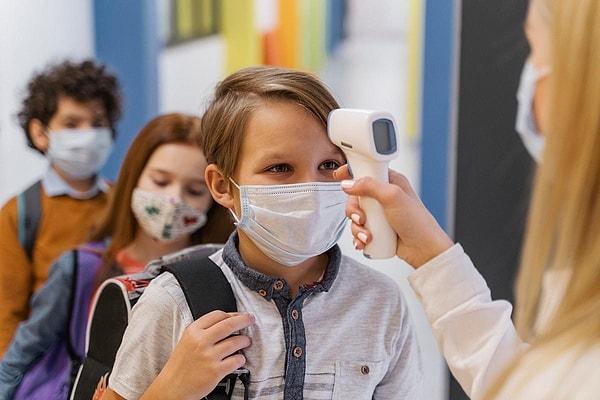The Long-Term Impacts of COVID-19 on Children: Insights from Recent Research
In the ever-evolving landscape of understanding the SARS-CoV-2 virus, scientists have uncovered that COVID-19 is not solely a respiratory illness but can impact various body systems, including the brain. A recent study focusing on children compiles brain imaging data from scientific articles published over nearly two years, shedding light on aspects of the virus's effects beyond what we have known so far. Explore the details below for insights into the long-term consequences of COVID-19 in children. 👇
Examining Approximately 10,000 Articles to Derive Accurate Conclusions

After scrutinizing around 10,000 articles, researchers narrowed down their focus to 96 through a meticulous screening process. The final set of articles encompassed data collected from 327 pediatric COVID-19 cases.
Abnormal Physical Changes in the Brain Linked to Common Symptoms in Children

Analysis of data from Asia, Europe, and America revealed that the frequent symptoms in children often led to abnormal physical changes in the brain. Magnetic Resonance Imaging (MRI) predominantly captured imaging data, although some studies utilized Computerized Tomography (CT) and other methods. Results indicated that neurological symptoms in children recovering from COVID-19 could frequently manifest as a physical alteration in the brain.
Almost Half of the Children Exhibited Brain Symptoms

Researchers found that nearly half of the children examined displayed symptoms of brain involvement. The study disclosed that 43.74% of children in the included studies exhibited such neurological abnormalities.
Shift in Perception: Children's Risk of Severe Illness

Contrary to initial beliefs during the early stages of the pandemic, which focused on the lower risk of severe illness in children compared to adults, a more detailed picture emerged over time. Dr. Carlos Oliveira from Yale Pediatrics highlighted that while children might recover faster from infection, they still face risks of complications and long-term effects of COVID-19.
Various Neurological Symptoms Detected in Brain-Scanned Children

The study identified a range of neurological symptoms in children whose brains were scanned. Among the most common was encephalitis or brain inflammation—a known complication of COVID-19. Other findings included swelling, vascular abnormalities, and spinal cord inflammation.
Urgent Need for Increased Pediatric Research and Clinical Studies

The authors emphasized the necessity for enhanced examinations and clinical studies for children. They summarized their findings, stating, 'The observed frequency of neurological abnormalities in pediatric COVID-19 patients yields several significant clinical and research implications. Firstly, it underscores the necessity of maintaining a high index of suspicion for neurological complications, especially in children presenting with neurological symptoms related to COVID-19.' Additionally, the study emphasizes the importance of continual exploration into the long-term outcomes of COVID-19 in children.
Complex Analyses Required to Confirm Linear Relationship between COVID-19 and Neuroimaging Findings

The study suggests that more intricate analyses are required to confirm the linear relationship between COVID-19 and neuroimaging findings. While the study has some limitations, such as its early definition of the research period and uncertainties regarding whether COVID-19 caused imaging abnormalities or if they preexisted, it highlights the ongoing need for research to fully comprehend the potential impacts of the virus.
COVID-19 No Longer Classified as an Emergency, Yet Pandemic Continues

This research underscores the necessity for further exploration in our quest to fully understand what this virus can do. While COVID-19 is no longer classified as an emergency, it does not signify the end of this pandemic. It is crucial to consult with a specialist rather than attributing every symptom to COVID-19.
Keşfet ile ziyaret ettiğin tüm kategorileri tek akışta gör!


Send Comment